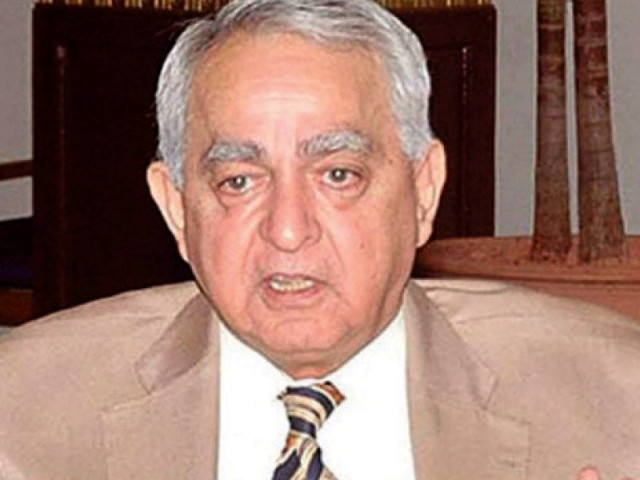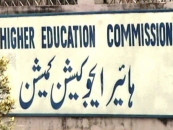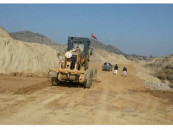Alleged interference: Hitting out at judiciary, NAB chief threatens to quit
In a letter to President Zardari, Bokhari expresses concern at SC position on NAB mandate.

NAB chairman Admiral (retd) Fasih Bokhari. PHOTO: FILE
There’s no smoke without fire, says an old adage. This is true in the case of National Accountability Chairman Admiral (retd) Fasih Bokhari.
After over a week of speculation, it transpired on Monday that the anti-graft watchdog’s chief did say in a letter to President Asif Zardari that he would resign if the Supreme Court’s alleged interference in NAB affairs was not stopped.
The letter – a copy of which is available with The Express Tribune – was sent to the president on January 27.
Earlier, on January 15, BBC Urdu quoted the “NAB chairman” as saying that he had stepped down. But the news turned out to be inaccurate and the caller was some impersonator, not Bokhari.
In his letter to President Zardari, the NAB chairman expressed serious concerns at the Supreme Court’s position on the bureau’s mandate defined in the National Accountability Ordinance (NAO) 1999.
“I’m constrained to observe and bring to your [the president’s] notice that the position of the honourable Supreme Court, on this issue, remains clouded by action that are bearing heavily on my mandate to strictly abide by the NAO in both letter and spirit,” reads the letter signed by Bokhari.
The Supreme Court directed NAB on January 15 to arrest all accused in the infamous multi-billion-rupee rental power projects (RPPs) case including Prime Minister Raja Pervaiz Ashraf. The court has already issued a contempt notice to Bokhari for non-compliance of its orders.
“I fear that in the current direction that the Honourable Supreme Court appears to be taking, I will not be able to perform my independent statutory role. This situation needs to be addressed firmly in line with the aspirations of the people and the clear mandatory provisions of the law and the Constitution.”

“The need to allow the apex court to be diverted from its prime roles as the final appellate and constitutional court may need to be addressed since ability to take suo motu notice of human rights cases can become an open licence to undermine government and may be taking time away from addressing the issues of judicial management of the current huge pendency of cases in our courts,” Bokhari said in the letter.
“The benchmark sadly being lost by a judiciary that may be fast losing its own moral authority by relying on the contempt law, media, street power of lawyers and unchecked violation of the Supreme Court judges’ code of conduct,” he added.
“The clear line between the recognised authority of the SC to monitor NAB, investigation to the limited extent of ensuring fare investigation and itself becoming involve in guiding investigations, appears to becoming breached as a norm as the elections near. Contempt notices verbal order that differ from written order insufficient time to prepare numerous progress reports, or placing extreme personnel who appear before the honourable judges,” states the letter.
“There is even a danger that NAB personnel could lose their independence and are unable to carry out their investigations in an independent manner due to the pressure being exerted on them by the SC to proceed along lines which seem to be desired by it [SC]. In relieving this pressure, to safeguard their jobs and so as not to displease the court, there is danger of unfair investigation being resorted to.”
Bokhari also referred the issue of high-profile cases, including the case of late NAB investigator Kamran Faisal, stating that this phenomenon is observable in the investigation of very senior politicians of the government where orders to even arrest them have been issued on investigation reports of regional investigators that have yet to reach the executive board meeting.
Kamran Faisal, who was investigating the RPPs case, was found dead at his room on Federal Lodges in Islamabad on January 18. Initial investigations and autopsy ruled it a “suicide” – a conclusion that Faisal’s family has refused to accept.
Though the investigation is under way, the Supreme Court has taken suo motu notice of Faisal’s mysterious death and formed a two-judge bench to hear the case.
“This could be construed as a clear violation of the power of chairman NAB and some degree circumventing the NAO which I’m required by law to follow. The NAO, in my view, it remains law passed by the Parliament and represents the will of the people and such I’m bound to follow it. The NAB ordinance mandates that no reference can be filed until I have been allowed to exercise my mind and decide that a clear case of criminality has been made out. I would be failing in my statutory duty if I shirk from upholding the law that I’m mandated to protect. NAB chairman assured [the] president that he will not flinch from prosecuting whosoever may be identified as having committed a criminal act under the NAO,” he stated.
Bokhari said he would step down if his concerns were not addressed immediately. “Should these issues not be addressed expeditiously, I will regretfully be forced to tender my resignation,” he said.
Asked for comments on Bokhari’s letter, NAB spokesperson Zaffar Iqbal Khan said: “Concerns of the NAB chairman may be taken seriously in light of pressure the bureau’s staff is facing due to undue pressure.”
Published in The Express Tribune, January 29th, 2013.



















COMMENTS
Comments are moderated and generally will be posted if they are on-topic and not abusive.
For more information, please see our Comments FAQ